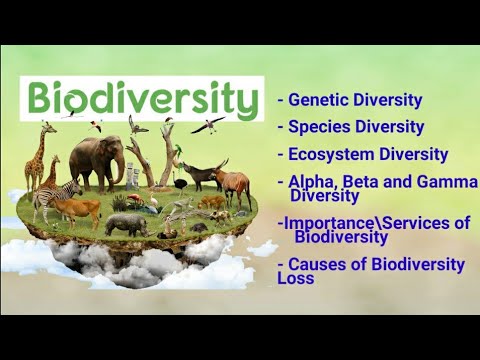biodiversity, the variety of living organisms found in a particular area, is not only essential for maintaining a healthy and balanced ecosystem but also plays a crucial role in driving economic growth. Contrary to popular belief, biodiversity conservation is not solely an environmental concern; it is closely linked to a nation’s economic well-being. Here are some reasons why biodiversity is good for the economy:
1. Ecosystem Services:
biodiversity provides numerous ecosystem services that are vital for human survival. These include the provision of clean air and water, soil fertility, climate regulation, natural disaster prevention, and pollination of crops. Without these services, economies would be heavily burdened with costs in providing alternatives or supporting systems. Protecting biodiversity ensures that these services continue to be available for free, reducing the demand on government budgets and helping businesses operate more efficiently.
2. Tourism:
One of the most apparent economic benefits of biodiversity is its power to attract tourists. From lush rainforests teeming with unique flora and fauna to vibrant coral reefs home to colorful marine life, natural landscapes rich in biological diversity draw travelers from all around the globe. In turn, tourism drives local economies by creating jobs in hospitality, transportation, and entertainment sectors. According to estimates by The World Travel & Tourism Council (WTTC), nature-based tourism contributes over $7 trillion annually to the global economy.
3. Agriculture:
Agriculture relies heavily on biodiversity as it provides essential resources such as genetic diversity for breeding new crop varieties with enhanced traits or resistance against diseases and pests. A diverse set of plant species contributes to food security by ensuring a stable supply of fruits, vegetables, grains, and other agricultural products throughout the year. Additionally, pollinators like bees play an indispensable role in crop production through their fertilization services – adding an estimated $235 billion worth of crops annually worldwide.
4. Natural Resources:
biodiversity-rich ecosystems often contain valuable natural resources like timber, medicinal plants, and minerals. sustainable harvesting of these resources can provide local communities with income and employment. Furthermore, preserving the balance between flora and fauna helps maintain the productivity of these resources over the long term. Industries that depend on such resources, such as pharmaceuticals and biotechnology, greatly benefit from protecting biodiversity.
5. Climate Resilience:
biodiversity plays a significant role in helping ecosystems adapt to climate change by providing buffers against its adverse effects. Forests, wetlands, and coastal habitats act as natural carbon sinks, absorbing carbon dioxide emissions and mitigating climate change. Protecting biodiversity ensures the preservation of these ecosystems’ resilience to future disturbances, safeguarding economic activities that rely on their uninterrupted functioning.
6. Research and Innovation:
biodiversity acts as a treasure trove of novel genetic materials that can be used for various applications in research and innovation. From discovering new medicines to developing bio-inspired technological solutions, biodiversity fuels advancements across industries. These innovations not only generate revenue for businesses but also create jobs and stimulate economic growth.
In conclusion, biodiversity is not just about protecting Mother Nature; it is also vital for sustained economic prosperity. From providing ecosystem services to driving tourism revenue and supporting agriculture and natural resource-based industries, biodiversity places a significant role in shaping economic development worldwide. It is crucial for policymakers, businesses, and individuals to recognize the value of preserving biodiversity as an investment in both our environment and our economy.





